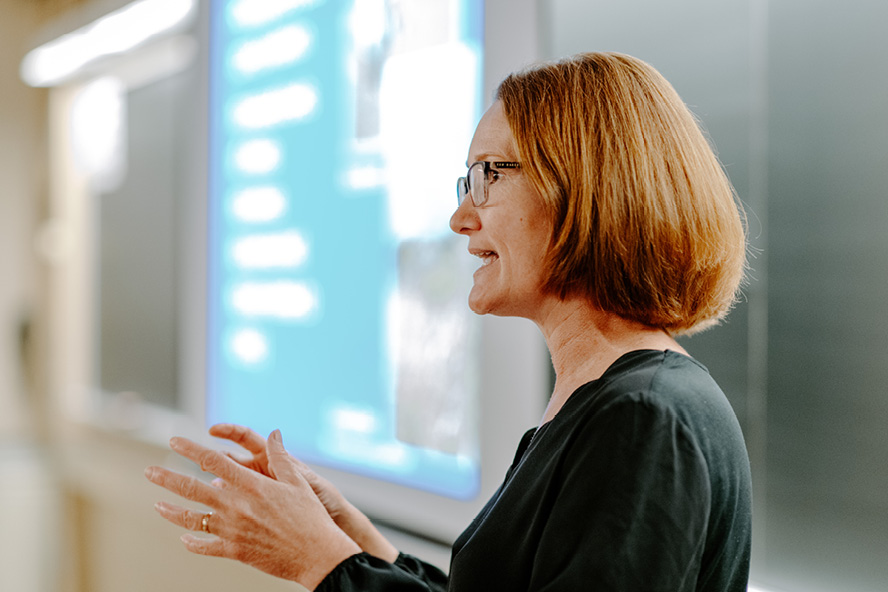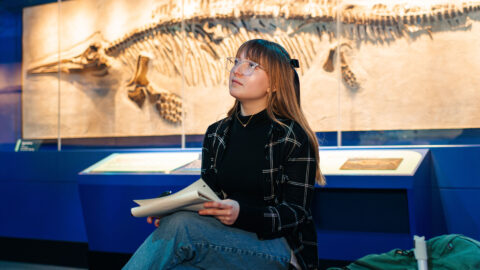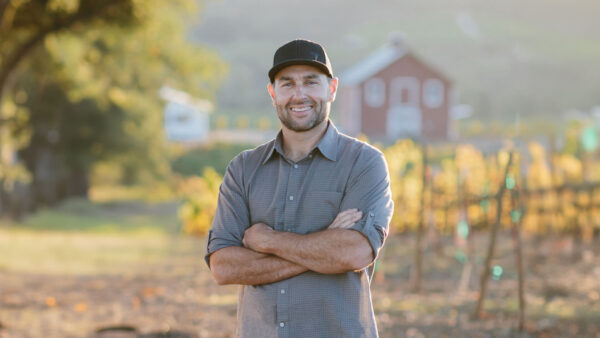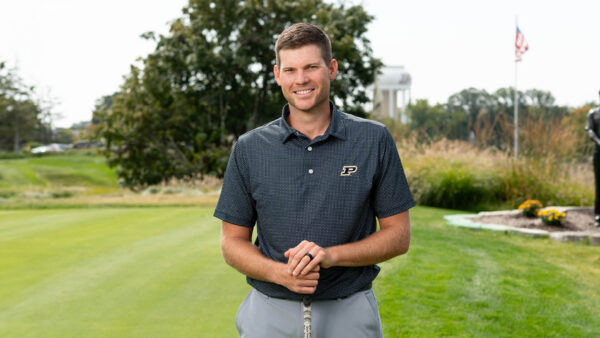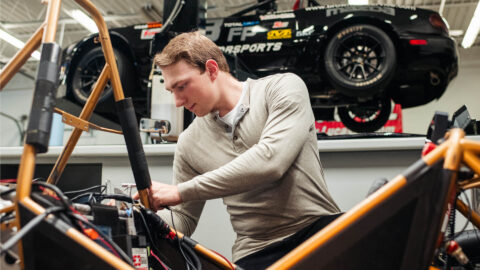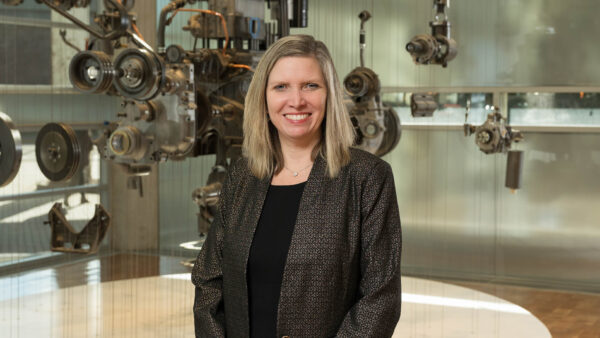A thank you to those who led the way for Purdue teaching award recipient
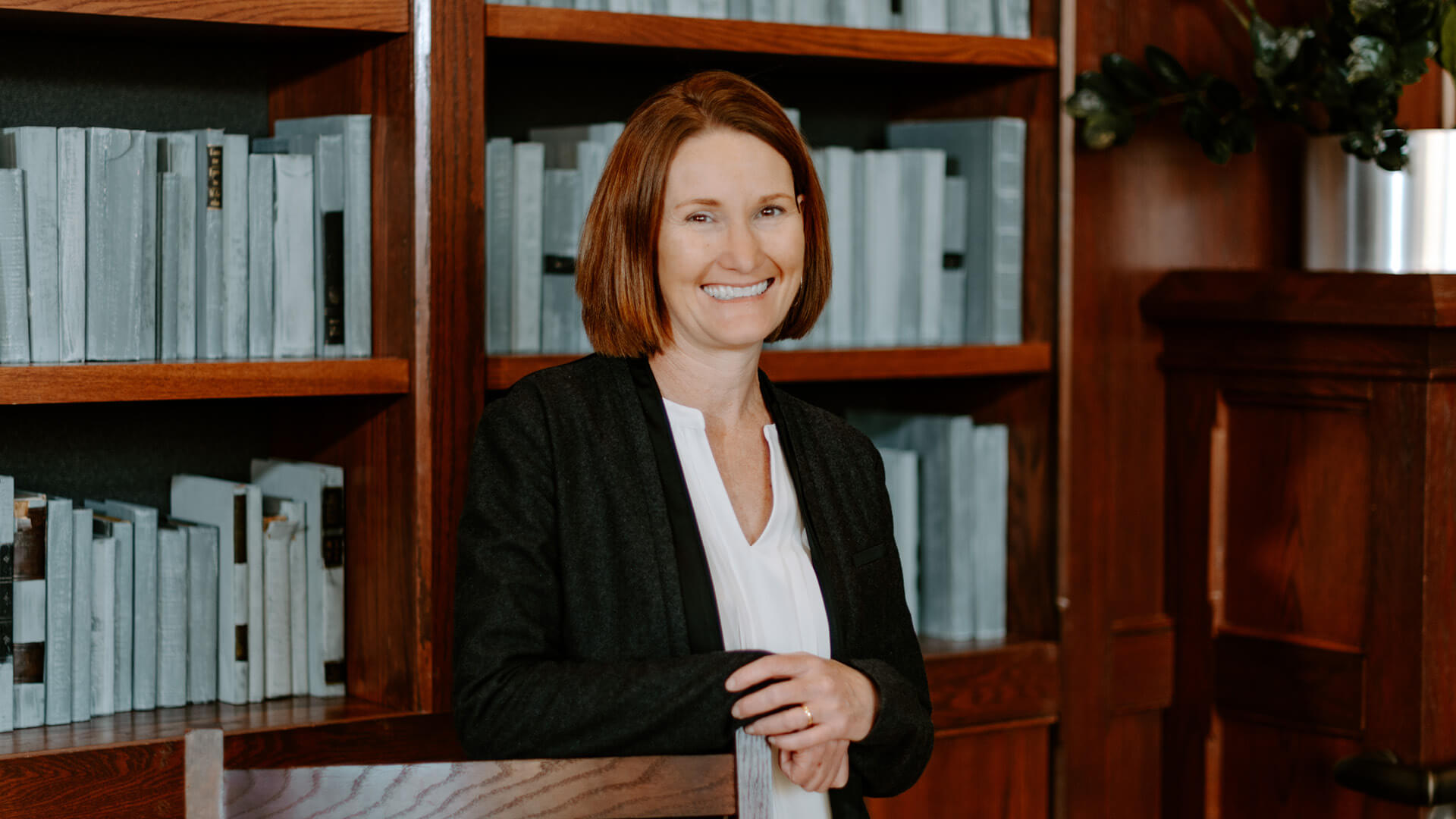
Charles B. Murphy Outstanding Undergraduate Teaching Award: Laura Bowling
“When I was an undergraduate, I had absolutely no ambition to go to graduate school,” says Laura Bowling.
“I completed a senior thesis and talked to an undergraduate mentor about a future career,” Bowling says. “I was applying to work in consulting firms, and he said, ‘Well, I think you should get a PhD and teach because you have an excellent manner in explaining things to people.’ That was the first inkling I had that teaching was even a possibility.”
That mentor’s hunch about Bowling turned out to be correct. Today, she is a professor of agronomy and director of Natural Resources and Environmental Science in the College of Agriculture at Purdue University. And thanks to a nomination submitted by her students, Bowling was awarded the Charles B. Murphy Award, Purdue’s highest undergraduate teaching honor, for 2023. In reflecting on the award, her former professors and mentors are top of mind.
As Bowling sees it, winning the Murphy Award isn’t an individual accomplishment. Rather, it speaks to how her department has prioritized teaching and the belief that former professors and mentors invested in her.
Winning the Murphy Award is a way to say thank you and job well done to those people who helped to train me.
Laura Bowling
Professor, Agronomy
Director, Natural Resources and Environmental Science
College of Agriculture
Greatest classroom of all: The great outdoors
Although she hadn’t yet envisioned a career in teaching, Bowling was clear on wanting to be an engineer, something that she describes as a rarity for female undergrads at the time.
“What I found is that people usually either switch into engineering later, or they had a family member who was an engineer — at least for my generation. And in my case, my dad was an engineer.”
An initial foray into aerospace engineering wasn’t a great fit, so Bowling changed gears.
“I realized that there was this field of civil engineering that emphasized water movement in the environment,” Bowling says. “It was an opportunity to combine the academic skills I had with my broader interests in preserving the environment.”
As a graduate student at the University of Washington and researcher in Alaska, the geography of where she lived had a tangible impact on her work.
“My research has always focused on the hydrologic impacts of environmental change and how we are changing the way our watersheds respond,” Bowling explains. “I looked at forest harvest in the Pacific Northwest. I looked at permafrost thaw in the Arctic. Then I moved to Indiana. The environmental change we have in this particular landscape is centered around our agricultural drainage practices.”
Bowling’s work stretches far beyond the classroom to include area watersheds. With help from students, colleagues and volunteers, she has helped improve the health of local ecosystems. In Happy Hollow Park near the Purdue campus in West Lafayette, for example, she and her team used native plantings to help limit erosion.
“We currently have a team working to build an educational trail system at a wetland on the agronomy farm property,” Bowling shares.
The project includes construction of a boardwalk and a bridge to make the trail system widely accessible, along with signage that explains the important role that wetlands play in bolstering water quality.
“As water is leaving the farm, the wetland is working to treat that water quality so that it’s better downstream,” Bowling explains.
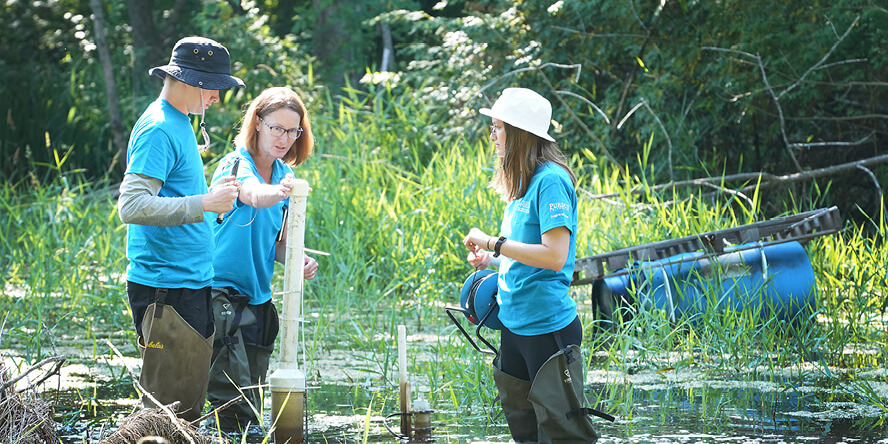
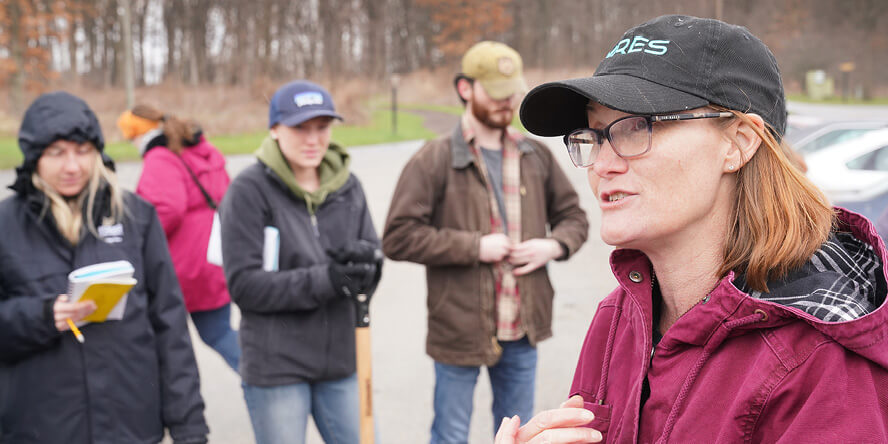
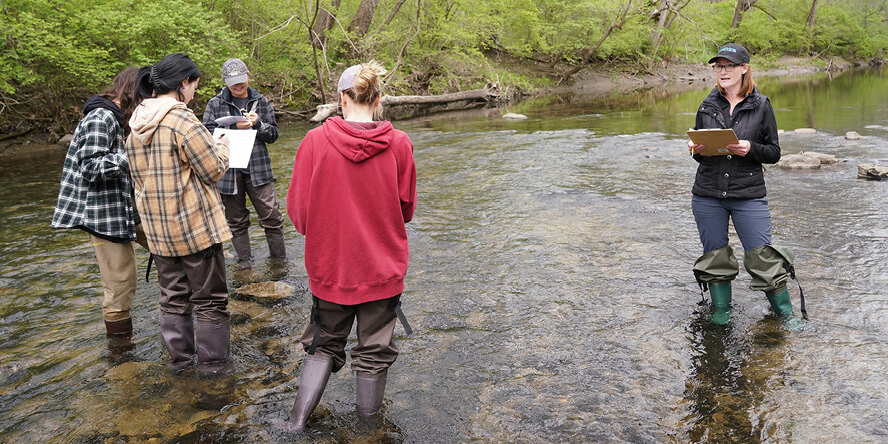
Drive to make a difference
Bowling’s work as director of Purdue’s Natural Resources and Environmental Sciences (NRES) program allows her to work closely with students in the major.
“I get to know those students at a level that very few other professors would have the opportunity to do,” Bowling says.
Purdue’s NRES program, founded in October 1970, has the distinction of being one of the two oldest interdisciplinary environmental programs nationwide.
“Yale has a similar program that was created in the same year, and we’re not exactly sure what month they were created. Regardless, this was extremely innovative at the time.”
As an engineer teaching predominantly non-engineering students, Bowling tries to be cognizant of the different ways that students learn.
When necessary, Bowling will resort to creative means to drive home a point.
“My mom was a teacher, and she would substitute teach Spanish classes in high school,” Bowling says. “Rather than speaking a word of English, she would act everything out and make everyone laugh while she was doing it. I would be so embarrassed. But now, when I’m giving one of my ridiculous explanations and my students are all laughing at me, I think to myself, ‘I’ve become my mother!’”
For Bowling, it’s all about seeing that moment when people get it.
“Whether it’s understanding something in one of the hydrology classes and seeing that ‘OK, now I get it’ moment happen, or a student who was lost and they weren’t sure whether they were in the right major,” Bowling says. “We bring in alumni speakers who talk about their career path and they may see, ‘That’s it — that’s what I want to do.’”
That’s a critical moment for students.
“These students are in this career path because they want to make the world a better place. And that makes them fantastic to work with.”
These students … are in this career path because they want to make the world a better place. And that makes them fantastic to work with.
Laura Bowling Professor, Agronomy
Director, Natural Resources and Environmental Science
College of Agriculture
Importance of mentorship
Before her teaching career could blossom, Bowling needed someone to come along and plant that seed — even if she didn’t recognize it at the time.
“For me, I often haven’t had formal mentors,” Bowling reflects. “I had to get to a certain amount of maturity myself before I could look back and recognize the mentors in my life.”
There was a moment that really drove the lesson home for Bowling. She had just given a talk about mentorship to a graduate student audience when she learned that a former professor had passed away.
“It was one of my undergraduate professors,” Bowling says, “but someone I still interacted with in graduate school. I realized that while he was never a formal mentor, he was looking out for me all along the way.”
Today, Bowling tries to emulate that model in how she interacts with her students, recognizing that mentorship is not always formal, but can still be powerful.
“Some of the people that I might have the most impact on might not recognize that I was trying to look out for them and maybe nudge them a little bit in a different direction.”
